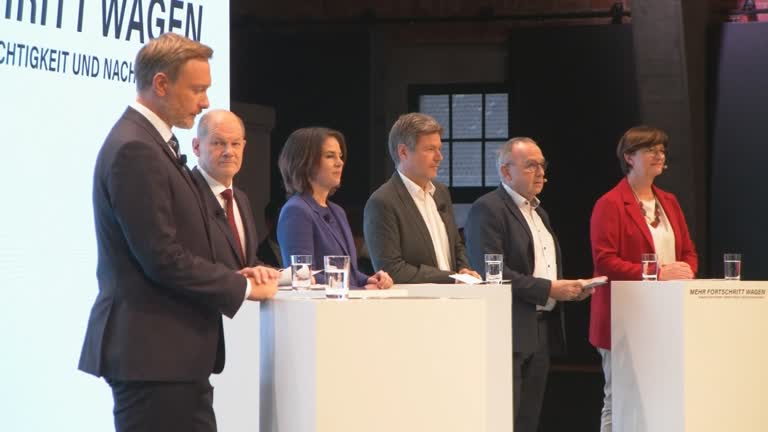German Social Democrat Olaf Scholz said on Wednesday (November 24) he had reached a coalition deal to form a new government that will try to modernise Europe’s largest economy and bring the curtain down on the Angela Merkel era.
Scholz’s centre-left Social Democrats (SPD), the ecologist Greens and the libertarian Free Democrats (FDP) want to accelerate the transition to a green economy and digitalisation while maintaining fiscal discipline, according to a 177-page agreement.
The alliance – named a traffic light coalition after the three parties’ respective colours – has a majority in the lower house of parliament and hopes the government will be sworn in early next month after the parties ratify the coalition pact.
The first alliance at a federal level between the ideologically disparate parties will end 16 years of Merkel-led conservative government, marking a new era for relations with Europe and the rest of the world.
At a news conference in Berlin, flanked by the FDP and Greens leaders, Scholz recalled that when the first traffic light was erected at the city’s Potsdamer Platz in 1924, many questioned whether it could work.
“Today, the traffic light is indispensable when it comes to regulating things clearly and providing the right orientation and ensuring that everyone moves forward safely and smoothly, ” he said.
“My ambition as chancellor is that this traffic light alliance will play a similarly groundbreaking role for Germany.”
Merkel leaves big shoes to fill. She has navigated Germany and Europe through multiple crises and been a champion of liberal democracy in the face of rising authoritarianism worldwide.
Her critics say she has managed rather than solved problems and leaves her successor tough decisions on many fronts.
Scholz’s incoming government faces immediate challenges, with Europe grappling with the fallout from Brexit, a crisis on the European Union’s border with Belarus and surging COVID-19 cases.
While Germany’s electoral campaign was largely focused on domestic issues, the coalition pact shed light on the next government’s foreign policy priorities.
The parties agreed to strengthen the EU’s economic and monetary union and signalled an openness to reform the bloc’s fiscal rules, also known as the Stability and Growth Pact.
They also agreed Germany would remain part of NATO’s nuclear sharing agreement, a move that will prevent a rift in the Western military alliance at a time of rising tensions with Russia.
Greens co-leader Annalena Baerbock, 40, is expected to become the country’s first female foreign minister. While the parties have yet to announce the cabinet line-up, Scholz has already said he wants a gender-equal government.
FDP leader Christian Lindner, 42, is set to take over at the finance ministry and Greens co-leader Robert Habeck, 52, is widely expected to take on a newly expanded economy and climate change ministry.
The incoming coalition will have to balance the Greens’ calls for a tougher line on Russia and China on human rights with Scholz’s likely preference not to risk a confrontation with the two countries over issues such as Taiwan and Ukraine.
Underscoring its socially liberal bent, the coalition agreed to allow multiple citizenship and legalize the sale of cannabis for recreational use at licensed shops.






